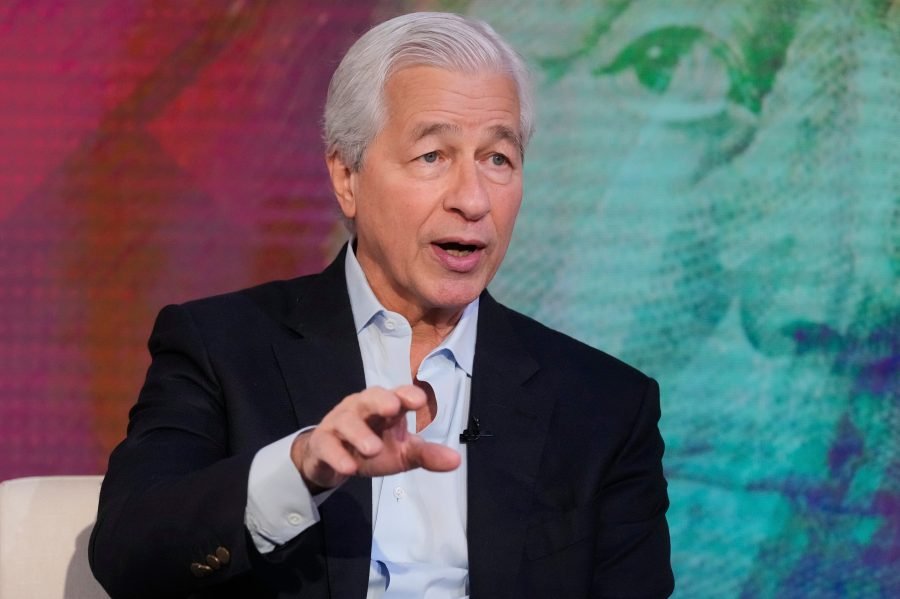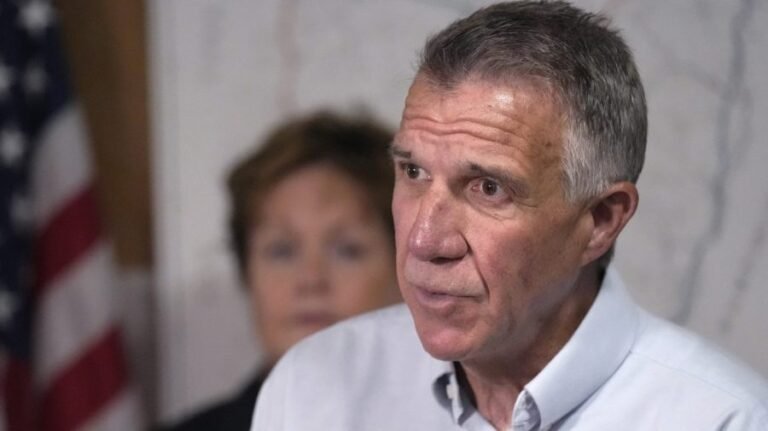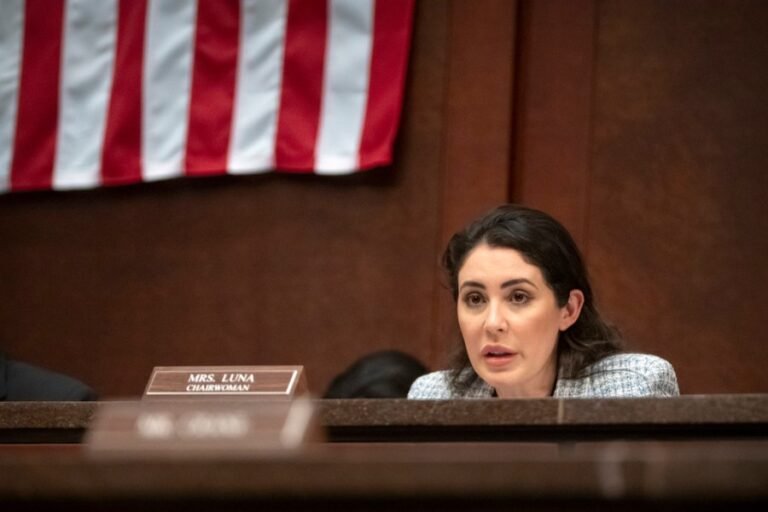
Jamie Dimon, widely regarded as the most influential banker of this generation, has gone full MAGA. It couldn’t have come at a better time.
China’s president, Xi Jinping, is waging an economic war against the U.S., and our country needs to push back hard. As President Trump attempts to curb China’s unfair trade practices, America’s vulnerabilities are on full display. Despite the critical importance of the U.S. consumer to China’s struggling economy, the White House’s threat of punitive tariffs has not swayed Beijing. Xi is meeting — and, indeed, topping — Trump’s tariffs with measures such as blocking exports of rare earths, possibly crippling much of U.S. industry.
Beijing has the U.S. economy in a choke-hold, taking advantage of our dependence on Chinese rare earths and other critical goods where they have purposefully staked out a dominant position. Our country needs an all-out Manhattan Project-like effort to address those vulnerabilities, and JPMorganChase’s CEO has pledged to help. Other American businesses need to step up as well.
Dimon committed in recent days to make direct equity and venture capital investments of up to $10 billion in four areas essential to America’s future. The capital infusions will help facilitate $1.5 trillion of investment over 10 years, mostly in the U.S. The bank had previously committed to finance some $1 trillion in sectors targeted by Dimon. The recent pledge ups the ante by 50 percent.
The focus of that investment will be in four areas: strengthening our supply chain and beefing up advanced manufacturing of critical products; developing advanced defense technology, including secure communications; establishing energy independence, including battery storage and grid resilience; and pursuing “frontier” and strategic technologies like AI, cybersecurity and quantum computing.
These are areas vital to U.S. expansion, and are also a focus of the Trump White House. As Dimon pledges to invest in these sectors, he is also advocating “to remove obstacles that stand in the way: excessive regulations, bureaucratic delay, partisan gridlock and an education system not aligned to the skills we need.”
These ambitions are exactly in line with the America First agenda. Trump has called repeatedly for permitting reform and other policies that could speed up our country’s abilities to take advantage of fast-moving technologies, and also to counter threats from overseas. Dimon shares those objectives, describing the bank’s commitment as a matter of national security. He is correct.
Dimon’s program includes investments in 27 sub-areas, including shipbuilding, munitions, nuclear energy and, of course, artificial intelligence. Reshoring is one theme, which of course has been a top priority for the president. Trump’s trade initiatives are not only meant to level the playing field and make U.S. companies more competitive, but are also intended to bring manufacturing back to the United States.
Trump has railed for decades that our trading partners have taken advantage of the U.S., and that the loss of production and jobs to countries with lower wage rates and protectionist policies has not only hurt American workers but also created vulnerabilities. The fight over rare earths demonstrates that reality.
China set out to dominate rare minerals used in key new technologies just as they moved to take over electric vehicle production and solar panels — by overproducing, driving prices down worldwide and putting competitors out of business. The U.S. has considerable deposits of rare minerals; we used to be one of the world’s largest producers. Now, the White House is trying to revive our production, to lessen Beijing’s grip on our ability to produce everything from airplanes to batteries.
Critics of the president have dismissed his reshoring push as unrealistic, but since he took office, many companies have pledged to bring manufacturing back to the U.S. In part these firms are responding to the costs of maneuvering around tariffs put in place by the White House, but there are two other major drivers of the trend.
One is energy. The U.S. has an abundance of cheap energy, and unlike Joe Biden, Trump is willing to unleash it. Experts say we need an “all of the above” energy strategy to accommodate the demand from new technologies, and especially from data centers; that is what the White House has enabled. While Biden foolishly attempted to ban fossil fuel development because of climate concerns, Trump has accelerated leasing and permitting of new oil-and-gas exploration, including in resource-rich areas like Alaska that Biden had put off limits.
But it is not only fossil fuels that are moving forward. Dimon targets “next generation nuclear tech” — new, smaller and safer nuclear facilities are under construction that will play a key role in supporting data center growth.
Power costs in the U.S. are about half those in rival manufacturing centers like Germany. In energy-intensive industries like steel producing, that is a huge win for the U.S.
The other development which makes onshoring a real possibility today is AI and robotics. Over the past few decades, the high cost of labor in the U.S. compared to China or Mexico, for instance, made imports cheaper and domestic firms uncompetitive. Today, factories use fewer workers; though that means onshoring will provide fewer jobs, it means the U.S. can compete again.
Can Trump’s program work? The recent announcement from Stellantis suggests that it could; the car maker announced it would invest $13 billion in its U.S. auto manufacturing operations over the next four years, adding more than 5,000 jobs to its domestic workforce. Stellantis estimated that tariffs will cost it some $1.7 billion this year; in 2024, more than 40 percent of their vehicles sold in the U.S. were imported, mostly from Canada and Mexico.
Apple, Nvidia, Johnson & Johnson and many other companies have made similar moves to increase U.S. manufacturing. So yes, it can work, but the White House needs U.S. industry and financial leaders to get on board.
Jamie Dimon’s commitment is welcome and needed. As he said, “If America isn’t very strong, there’s no global security.” So true.
Liz Peek is a former partner of major bracket Wall Street firm Wertheim and Company.






